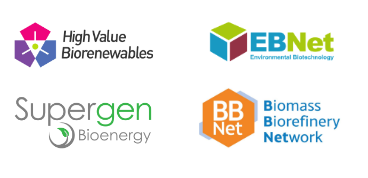Bio-based catalyst for bioproduct oxidation

- Project lead
- Jonathan Wagner
- Institute
- Loughborough University
Summary:
This project seeks to develop a cheap, nontoxic and fully renewable biorefinery catalyst to facilitate the oxidation of 5-hydroxymethylfurfural (5-HMF) into 2,5-furandicarboxylic acid (FDCA), a critical intermediate for bioplastics (e.g., Bio-PET) synthesis. Despite high demand, displacement of PET with FDCA-based PEF is currently limited by the high cost of this intermediate due to a lack of efficient 5-HMF oxidation routes.
The catalyst employed by the project is a known fermentation by-product but has never been employed for catalysis. Unlike conventional catalysts used for 5-HMF oxidation, it is stable in water, eliminating the use of organic solvents. It also avoids the use of expensive and environmentally harmful metals during catalyst synthesis.
As well as demonstrating technical feasibility of this process, the project will conduct preliminary techno-economic modelling and explore potential commercial partnerships and collaboration opportunities to apply for scale-up funding.
Aims:
This aim of this project is to develop a cheap, nontoxic and fully renewable biorefinery catalyst to facilitate the oxidation of 5-hydroxymethylfurfural (5-HMF) into 2,5-furandicarboxylic acid (FDCA), a critical intermediate for bioplastics (e.g., Bio-PET) synthesis. Despite high demand, displacement of PET with FDCA-based PEF is currently limited by the high cost of this intermediate due to a lack of efficient 5-HMF oxidation routes.
Outcomes:
In this project, we developed a green, natural, water-tolerant, and highly active heterogeneous biocatalyst for the base-free 5-hydroxymethylfurfural oxidation. The catalyst employed by the project is a known fermentation by-product but has never been employed for catalysis. Unlike conventional catalysts used for 5-HMF oxidation, it is stable in water, eliminating the use of organic solvents. It also avoids the use of expensive and environmentally harmful metals during catalyst synthesis.
The research finding is being prepared to publish in a journal.

Impact:
The project’s preliminary techno-economic modelling and exploration of commercial partnerships could lay the groundwork for future scale-up and commercialisation efforts. Successful commercialisation of the developed catalyst and process could lead to job creation, economic growth, and broader societal benefits.
Academic partners: Dr Jonathan Wagner, Loughborough University, Dr Swathi Mukundan, Loughborough University and Dr Fabio Santomauro, Independent Researcher
Industrial partners: Dr John Ryan, BIOME Bioplastics








